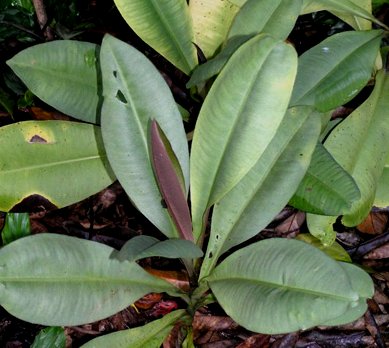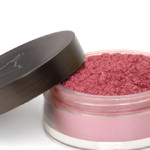 Since records began, there have been claims for certain foods: oysters with their aphrodisiac properties, or the remarkable rejuvenation abilities of ginseng, but not all of these claims have been borne out in practice. Sometimes, the side-effects of these ‘natural’ wonder drugs or foods have been as potentially damaging as the condition they treat, such as the photo-sensitivity and gastric complaints experienced by some of those using St John’s Wort to treat depression.
Since records began, there have been claims for certain foods: oysters with their aphrodisiac properties, or the remarkable rejuvenation abilities of ginseng, but not all of these claims have been borne out in practice. Sometimes, the side-effects of these ‘natural’ wonder drugs or foods have been as potentially damaging as the condition they treat, such as the photo-sensitivity and gastric complaints experienced by some of those using St John’s Wort to treat depression.
In Malaysia, a joint research team of Malaysian and South Korean scientists has been investigating the anti-ageing properties of the plant Kacip Fatimah. It’s a herb that has been recognised in folk medicine for having three distinct properties – it lightens the complexion, reduces signs of aging, and revives a flagging female libido!
So far the researchers from the University of Technology Malaysia and the Dongguk University, South Korea have discovered that one extract from the plant stimulates collagen production and appears to act as an anti-oxidant, as well as reducing melanin production, which both lightens the skin and reduces the liver spots and other marks of aging. It may also help treat sunburn scarring and these aspects of the plant will be revealed at a big cosmetics Expo in March, in Asia.
A whiter shade of fail
Many of us have problems with skin whitening, both as a treatment and as a concept. Using harsh products can damage the skin permanently, and that’s a risk that the sufferer often isn’t aware of, because skin-bleaching agents are often locally produced and less than stringently manufacturered. Of course it’s easy for a European like me to say that people of African and Asian descent should be proud of their skin colour, when I haven’t experienced any of the discrimination that still exists around dark skin. Even so, it’s time that as many people as possible started to state publicly that they think it’s a shame to still have skin bleaching systems touted across India, in particular, as being essential to a girl’s success in life. If you want lighter skin for personal reasons, that’s one thing, but if you want to be paler through social pressure, that’s something else again, and it’s an ugly society that demands a girl be pale-skinned for a husband to desire her.
Kacip Fatimah and libido
Other aspects of the plant’s biochemistry are equally fascinating and may be, in the long term, even more useful in working with female physiology. But there’s an issue, that always appears when active ingredients are mentioned – anything that can be used for healing can probably be used for harm too.
As well as surface preparations used on the skin, folk treatments have traditionally used this herb in a powdered form as a tablet to treat female fertility and to improve a woman’s libido. Or, as it was put in the Star newspaper in 2003 “Malaysia is home to herbs that are touted to do many magical things for your libido – Tongkat Ali is the outstanding example. Well, Ali’s wondrous cane benefits men, but the women apparently have something for them too – Kacip Fatimah…” Tongkat Ali translates as Ali’s Cane and that’s what the herb is said to turn a man’s genitalia into!
And while that sounds wonderful, and very egalitarian, and somehow rather fitting – shouldn’t a forest that produces Tongkat Ali for the gents also provide Kacip Fatimah for the ladies? – there’s a question mark over whether the female libido enhancer could have a darker side when used as a date rape drug.
This is always a risk with treatments that act on the nervous system and there are attempts in various parliaments now to have drugs that can be used in this way treated with an indelible dye that would change the colour of any drink or food to which they were added, to protect women from swallowing them without their consent or knowledge. Rohypnol has already become a ‘blue meanie’ – the standard pharmaceutical version turns blue in any liquid, but counterfeit versions of the drug are produced (illegally) without the dye. Kacip Fatimah will be a worrying case, if the claims for the plant are proven, as it will be easy to grow it and produce the compound without the grower, and supplier being traced.
Photograph author’s own


2 Comments